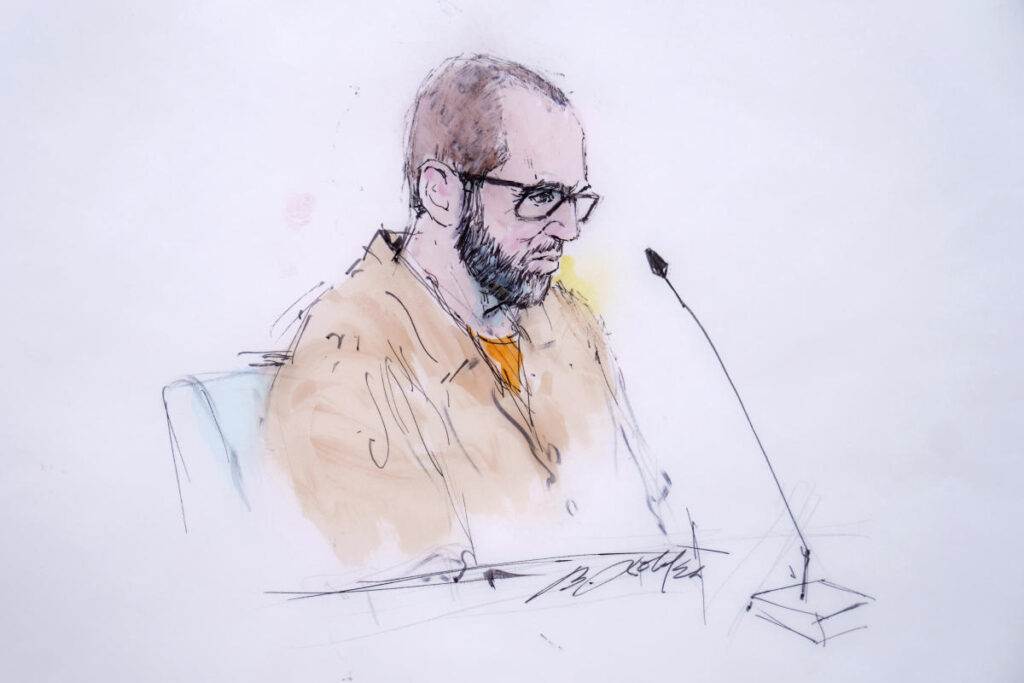On Monday, Alexander Smirnov, a former FBI informant, pleaded guilty to lying about a fabricated bribery scheme involving President Joe Biden and his son Hunter Biden. This phony narrative became crucial to the Republican impeachment inquiry against President Biden. In addition to pleading guilty to charges related to the false bribery claims, Smirnov also faced a separate indictment for tax evasion, where he was accused of concealing millions of dollars in income. His attorney did not provide any comments following the court hearing at the federal court in Los Angeles. Both the prosecution and defense agreed to recommend a prison sentence of four to six years, with Smirnov receiving credit for time served since his arrest in February.
The case revolved around Smirnov’s allegations that officials from the Ukrainian energy company Burisma had paid both President Biden and Hunter Biden $5 million each in 2015. Though Smirnov had served as an informant for over a decade, the pivotal claims against the Bidens emerged after he appeared to express bias against Joe Biden’s presidential candidacy in June 2020. Despite his assertions, it was revealed that Smirnov had only limited business interactions with Burisma beginning in 2017. An investigation by an FBI field office determined that the claims lacked credibility and recommended closing the case by August 2020.
Despite the claims made by Smirnov, no substantive evidence has come to light indicating that Joe Biden engaged in corrupt activities or accepted bribes during his time as vice president or president. Although Smirnov’s identity wasn’t disclosed until the indictment, his allegations significantly influenced the Republican push to probe into the Biden family’s dealings, igniting a House impeachment inquiry. Prior to his arrest, there were demands from Republican lawmakers for the FBI to release unredacted documentation regarding his uncorroborated claims, even though they acknowledged that they lacked conclusive proof of their validity.
In a September 2023 interview with investigators, Smirnov made additional assertions, including the unverified claim that Russians possessed recordings of Hunter Biden due to a hotel in Ukraine being “wired” and controlled by them. This supposed insider information was allegedly shared with him by several high-ranking Russian officials. However, according to the indictment, Hunter Biden had never set foot in Ukraine, casting further doubt on Smirnov’s claims. He purported to have connections with officials affiliated with Russian intelligence and, following his arrest, conveyed to authorities that these officials were involved in disseminating deceitful narratives regarding Hunter Biden.
The indictment against Smirnov came through the efforts of special counsel David Weiss, who also managed the prosecution of Hunter Biden on separate gun and tax-related charges. Hunter Biden was expected to face sentencing following his conviction in a gun-related trial and a guilty plea in a tax case. Nevertheless, just this month, he received a pardon from President Biden, who expressed beliefs that political motives had distorted the judicial process, leading to what he termed a miscarriage of justice.
This series of events not only underscores the volatile intersection of law, politics, and media narratives but also highlights how unsubstantiated claims can gain traction within the political landscape, significantly impacting investigations and impeachment processes. As the legal proceedings surrounding both Alexander Smirnov and Hunter Biden continue to unfold, the implications of these cases on public perception, political rivalry, and the nature of truth in contemporary politics remain to be fully assessed.

